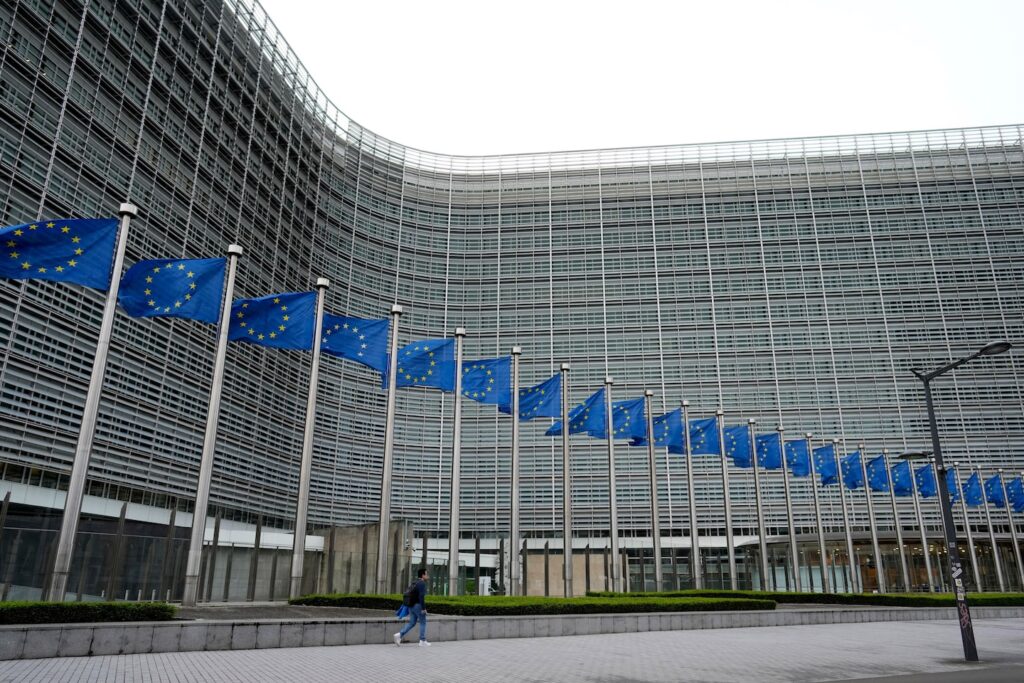Americans in Europe may find themselves in a strange situation these days. At least that was my experience during a recent week spent traveling from Germany to Norway to Spain. In America, we talk about economic problems. In Europe, all the talk is about how Europe can't keep up with American power.
The facts are stark: in 2008, the US and eurozone economies were roughly the same size. Today, the US economy is nearly twice the size of the eurozone's. And that's not just one measure: average income in Europe is now 27% lower than in the US, and average wages 37% lower. When Britain left the European Union, they dreamed of forging closer ties with the US and becoming almost the 51st state. Surely Brits would be sobered by the realization that if that happened, they would be the 51st poorest state in the union, with a gross domestic product per capita lower than that of Mississippi.
These days, the US economy is dominating the European economy. US technology companies dominate the continent. US banks are far more profitable than their European counterparts. US energy production has created a manufacturing boom, drawing many European companies to the US. As one German CEO told me, “The US is an easy place to do business, there is less regulation and energy costs are much lower. How can we invest rationally in Europe?” Two of Europe's biggest oil companies, Shell and Total Energy, are considering fleeing Europe and listing their shares on the New York Stock Exchange.
European leaders understand the problem and have proposed a series of solutions. Former Italian Prime Ministers Enrico Letta and Mario Draghi have been tasked with preparing a report outlining policy proposals to combat the recession. Letta's report has already been published, and many who have spoken to Draghi also understand his proposals. The proposals focus on a central problem: Europe is too divided.
Technology is a good prism through which to understand the challenge. To build a strong digital company, you need three things: great engineering talent, easy access to capital, and a big market (scale) where you can deploy new products quickly. The US has all three, and so does China. Europe has some of the best engineers in the world. And access to capital. But contrary to popular belief, Europe is not a single market. Tech entrepreneurs struggle to navigate 27 different markets with different regulations, authorities, standards and requirements. As the Letta report points out, Europe has 33 trillion euros of private savings, yet 300 billion euros are diverted to foreign markets every year, most of it from the US.
 Follow this author Opinion by Fareed Zakaria
Follow this author Opinion by Fareed Zakaria
These economic challenges are also reflected in the geopolitical sphere. Europe is still a collection of countries with the pretense of a unified defense and foreign policy. Defense spending has increased, but has fallen to the new normal since the end of the Cold War and remains too low. Germany is a prime example. In the 1980s, West Germany had more than 500,000 soldiers on high alert in case of a Soviet invasion through the Fulda Gap. Today, a unified Germany has fewer than 200,000 soldiers and is not as ready. The Royal Navy, which once dominated the seas, is smaller than it was in the 17th century and, despite efforts to increase spending, two warships were recently decommissioned due to a lack of crew.
European countries need to spend more, and they are already spending a lot. But unfortunately, a lot of it is wasted because there is little coordination and no grand strategy to reinvigorate it. Many Western European countries still spend money on territorial defense when they should be focusing on the ability to move troops and equipment to protect the eastern border of Europe, which is the source of the threat. Who is going to invade Belgium? Many Western European countries still spend money on territorial defense. The eastern border of Europe is the base of defense. And because European producers do not have the scale of a continent, much of the European defense spending goes to US companies.
The solution to Europe's woes can be summed up in one word: a deeper, more united, more strategic Europe. But that solution would necessarily mean strengthening the power of the European Union, fueling the populist backlash that was evident in last week's elections. One European politician explained the continent's dilemma to me: “We know what to do,” he said. “We just don't know how to win the elections after we win them!”
Perhaps the best counterargument is to quote another European, Jean Monnet, one of the founders of the European Union: “Europe will be formed in the midst of crises and will be the sum of the solutions adopted to those crises.”
The crisis is here, let's hope it leads to a solution.



